| Shepherds of Christ Daily Writing |
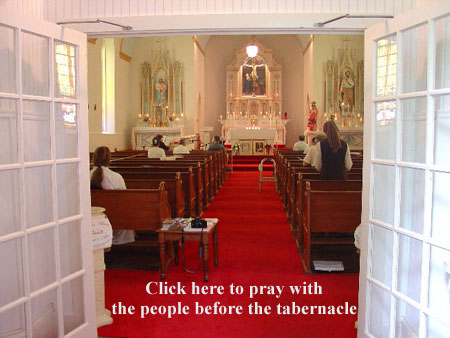 |
April 25, 2014
|
April 26th Holy Spirit
Novena |
The Novena Rosary
Mysteries |
We will be
painting the crucifix
in Florida this week.
Please pray for this.
Bible Bash/Fatima
Package for May
|
|
|
|
|
|
11" Fatima |
Your
choice of ONE |
Or Moses DVD |
8x10
picture of Our |
|
|
|
|
|
| Or David DVD | Or Esther DVD | Or Abraham DVD | Or Jacob DVD |
$50 plus postage
while supplies last
Call Rosie - 1-888-211-3041
Package for the month of Mary and First Communion
|
|
 |
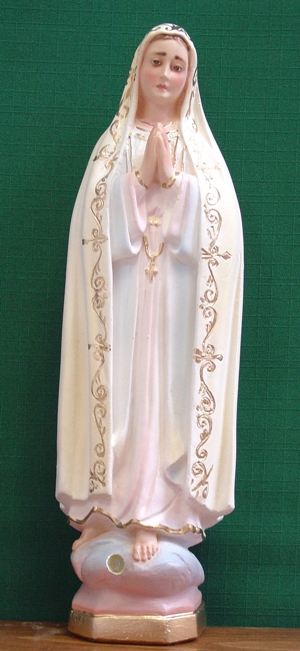 |
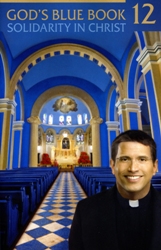 |
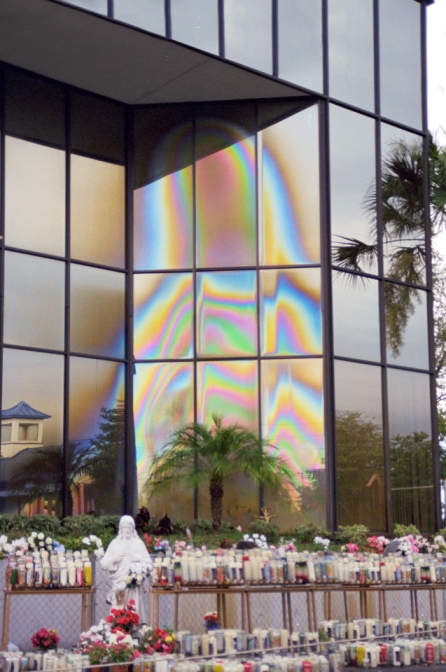 |
|
The Song of
Bernadette DVD OR |
The Miracle of Our Lady of Fatima DVD |
11" Fatima |
Blue Book 12 |
8x10 and 4x6 |
plus CD of October 13, 1996 Rosary
$50 plus postage
while supplies last
Call 1-888-211-3041
Package for Pope John Paul II
Pope John Paul II will be canonized April 27th.
Here is a wonderful DVD about his life.
12" Statue of Sacred Heart of Jesus with glass
CD of Live Rosary from Blue Book 13 October 13, 1996 –
1st 13th - Fr. Carter leads this live rosary
Blue Book 12
Karol Movie
Pictures of Our Lady of Clearwater 8 x 10 and 4 x 6
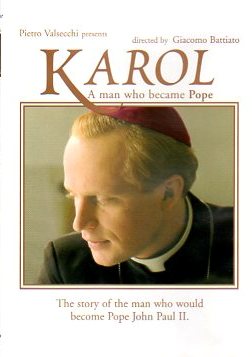

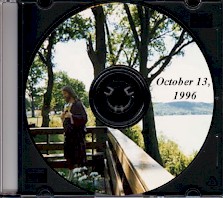
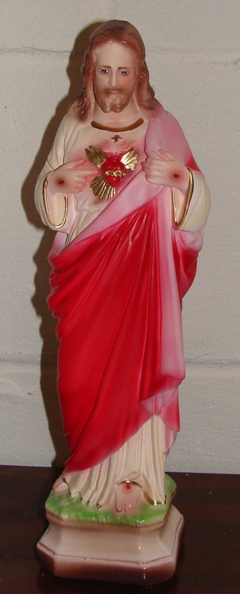
Hard copy of October 13, 1996 Rosary
We will include this special rosary with this offer.$100 plus postage
while supplies lastThis is a limited time offer.
These statues may become scarce in the near future.
Special First Communion Rosary with Image Center
in a gift box
white blue red
and an 8 x 10 picture of Our Lady of Clearwater
and a 4 x 6 picture of Our Lady of Clearwater
$10 plus postage
Original Image Rosary
8mm glass beads
in a matching gift box
$40 plus shipping
Given March 21, 2014
R. Pray for These Things
1) Pray for the priests, the Church and the world!
2) Pray for the spread of prayer chapters,
also for the spread of priests doing prayer chapters.
3) Pray for the spread of Blue Books.
4) People going to Florida and China.
5) Vocations to all 7 categories.
6) Pray for spread of Consecration and Rosary.
7) Pray for pope helping us.
8) Blue Book 13 cover; Blue Book 12, Blue Book 13 - all involved.
For our Publisher and all involved
9) All intentions on my list, Jerry's list.
10) Priests getting Fr. Joe's book.
11) Donors and members and their families.
12) Healing of the Family tree.
13) Dan & Melanie, Catherine & mom, Gary, Mary Jo,
Jim & statues, Fr. Ken, Monsignor, Tom & wife, Kerry.
14) All who asked us to pray for them.
15) All we promised to pray for.
16) Rita, John, Doris, Sheila, Jerry, Regina, Sanja,
Betty, Sophie, Rosie, Lisa, Eileen, Fr. Mike, Jeff,
Louie, 2 Dons, Mary Ellen, Fr. Joe, all priests helping us,
Ed, Jimmy, a special couple.
17) 2 babies and moms.
18) Funds and insurance.
19) Special intentions.
20) Jerry's garage.
21) Spread the Blood of Jesus on all of us here.
22) Consecrate all hearts.
23) Cast the devil out of all of us here and all in Movement.
April 25, 2014 - Friday of Easter Week
Contents:
Editor's Corner by Edward Carter S.J. We live in very critical times. The Church and the world are facing some of the most challenging problems ever.
We see a mixed picture as we look upon today's world. On the one hand, immorality is extremely pervasive. There are 50 million abortions performed across the world each year. Violence, in various forms, seems to have reached unprecedented proportions. Sexual promiscuity is rampant. Various injustices against the most helpless and marginalized peoples of the world seem more widespread than ever. The deterioration of many marriages and families is a stark reality. And, underlying all this, is a degree of atheism, agnosticism, and religious indifference which seems to be greater than at any time in history. To admit to all of the above is not to be pessimistic, but realistic.
On the other hand, God is forming many saintly people in all walks of life to counterbalance the widespread evil in the world. An example of this is that interest in spirituality on the part of a significant portion of the laity could well be at an all-time peak.
The quest for holiness on the part of many, then, is a reality, and seemingly on the increase. This desire for growth in holiness will, I believe, soon help lead the Church and the world into a great new era of peace in which love for God and neighbor will dominate the world.
We priests have the awesome privilege and responsibility to lead the flock in the quest for holiness. And what is holiness? We all know the answer. It is union with Jesus, it is the living of the Christ-life. Growth in holiness is becoming more aware of how much Jesus loves each one of us and increasingly responding with our own gift of self in love to our magnificent Savior, the One Who loves so tremendously, the One Who desires to lead us even closer to the Father in the Holy Spirit. If we priests are to lead the flock in the quest for growth in holiness, surely we ourselves must have a consistent desire to grow in holiness, a consistent desire to utilize those means which God puts before us for developing our life in Christ. By his reception of the Sacrament of Holy Orders, the priest is meant to apply to himself in a special way the words of St. Paul in his Second Letter to Timothy: "So you are never to be ashamed of witnessing to the Lord, or ashamed of me for being his prisoner; but with me, bear the hardships for the sake of the Good News, relying on the power of God who has saved us and called us to be holy--not because of anything we ourselves have done but for his own purpose and by his own grace. This grace had already been granted to us, in Christ Jesus, before the beginning of time, but it has only been revealed by the appearing of our Savior Christ Jesus." (2 Tim 1:8-10).
Our Life in Christ "I am the good shepherd: the good shepherd is one who lays down his life for his sheep. The hired man, since he is not the shepherd and the sheep do not belong to him, abandons the sheep and runs away as soon as he sees a wolf coming, and then the wolf attacks and scatters the sheep. This is because he is only a hired man and has no concern for the sheep. I am the good shepherd. I know my own and my own know me, just as the Father knows me and I know the Father. And I lay down my life for my sheep." (Jn 10:11-15) (1).
Yes, the Good Shepherd has laid down His life for us. Through His life, His brutal and agonizing death on the cross, and His glorious resurrection, He has achieved new life for us. We truly live a new life in Christ Jesus, Our Lord. St. Paul tells us: "You have been taught that when we were baptized in Christ Jesus we were baptized in His death: In other words, when we were baptized we went into the tomb with Him and joined Him in death, so that as Christ was raised from the dead by the Father's glory, we too might live a new life." (Rom 6: 3-4).
And again Paul speaks to us: "...wherever we may be, we carry with us in our body the death of Jesus, so that the life of Jesus, too, may always be seen in our body." (2 Cor 4:10).
Christ has come to give us a share in Trinitarian life. In Baptism the Persons of the Trinity have given themselves to us in an extraordinary fashion. The intimacy of this Trinitarian communication imprints upon us the image of the Trinity. Because Christ as man mediates this Trinitarian gift, this image also possesses a Christic dimension. This Christic, Trinitarian image within us is our life of sanctifying grace. This life of grace, this Christ-life, allows us to communicate with Father, Son and Holy Spirit, the divine Persons who dwell within us. This Christ-life allows us to pour ourselves out in love of God and neighbor.
The life that Christ has given us is not a type of superstructure which is erected atop our human nature. Although nature and grace are distinct, they are not side by side as separate entities. Rather, grace permeates nature. The Christian is one graced person. He or she has been raised up into a deeper form of life in Christ Jesus. Nothing that is authentically human has been excluded from the new existence. Whatever is really human in the life of the Christian is meant to be an expression of the Christ-life. The simple but deep joys of family life, the warm embrace of a mother for her child, the joy of being accepted by another in deep friendship, the wonderment at nature's beauty, the agony of crucial decision making, the success or frustration that is experienced in one's work, the joy of being well received by others and the heartache of being misunderstood--all these human experiences are intended to be caught up in Christ and made more deeply human because of Him.
Christ, has come, then, not to destroy anything which is authentically human, but to perfect it by leading it to a graced fulfillment.
Reflections on the Christ-life As I live the Christ-life, I should ask for a growing realization of how much Jesus loves me as this unique person. Jesus suffered and died for the entire human race, but He did it in a manner which makes it true to say He also did it for each individual in a most special way. Notice how personalized St. Paul makes the redemptive suffering and death and love of Jesus. In the Letter to the Galatians he does not use the plural, but the singular: "I have been crucified with Christ, and I live now not with my own life but with the life of Christ who lives in me. The life I now live in this body I live in faith: faith in the Son of God who loved me and who sacrificed himself for my sake." (Gal 2: 19-20).
And Fr. Joseph Chorpenning, O.S.F.S., writing on the spirituality of Francis de Sales, saint and doctor of the Church, reminds us: "In human relationships one seeks to awaken in others an awareness of their divine dignity by the respect and reverence one demonstrates for their person, individuality, and liberty. For example, Francis says that when Jesus accomplished our redemption on the day of His passion and death, 'He knew all of us by name and by surname.'" (2)
Jesus tells us to lose ourselves in Him, that it is only in Him that we can achieve His command of love. He tells us that love is the key. He tells us that the more we realize His great, individualized love for each of us, the more His plan for us becomes clear. His plan for us is summed up in His command to love God and to love our neighbor as ourselves. And He tells us that He is the source of our capacity to love.
In a previous issue we quoted from a book by one of our readers, Msgr. Bob Guste. Because his thoughts are so appropriate regarding our present topic, we repeat part of the quotation: "Ideal Catholics held up to us by the Church are the saints. As you read their lives, what do you notice? One after the other, they were men and women who had a deep, personal relationship with Our Lord Jesus Christ. Their hearts were on fire with love for Him...
"Sometimes for us Catholics, when we read these lines or hear them, we think 'well, that was okay for them but it's not for me!' The Church honors them in order to say, 'Hey! It is for you!' We're all called to genuine holiness, as the Second Vatican Council reminds us. We're all called to grow every day in knowing, loving and serving Our Lord Jesus Christ. That's our goal, and everything we do in the Church is meant to foster that goal." (3)
Fulgentius of Ruspe, Bishop, says: "Notice, at the conclusion of our prayer we never say 'through the Holy Spirit,' but rather, 'through Jesus Christ, your Son, our Lord.' Through the mystery of the Incarnation, Jesus Christ became man, the mediator of God and man. He is a priest forever according to the order of Melchizedek. By shedding His own blood He entered once and for all into the Holy Places. He did not enter a place made by human hands, a mere type of the true one; but He entered heaven itself, where He is at God's right hand interceding for us. Quite correctly, the church continues to reflect this mystery in her prayer..."
"We do not, however, only say 'your Son' when (we) conclude our prayer. We also say, 'who lives and reigns with you in the unity of the Holy Spirit.' In this way we commemorate the natural unity of the Father, Son and Holy Spirit. It is clear, then, that the Christ who exercises a priestly role on our behalf is the same Christ who enjoys a natural unity and equality with the Father and the Holy Spirit." (4)
A leading representative of the French School of Spirituality, St. John Eudes says: "I ask you to consider that our Lord Jesus Christ is your true head and that you are a member of His body.
He belongs to you as the head belongs to the body. All that is His is yours: breath, heart, body, soul and all His faculties. All these you must use as if they belonged to you, so that in serving Him you may give Him praise, love and glory. You belong to Him as a member belongs to the head. This is why He earnestly desires you to serve and glorify the Father by using all your faculties as if they were His." (5)
Speaking of the French School of Spirituality, Fr. Lowell Glendon, S.S. says: "While Christianity, by its very nature, is in some manner centered on Christ, the French School has its own way of expressing and living this truth. Christ is seen as the incarnate Word, the one who offers perfect religion, i.e., praise, adoration, obedience, and love to God. Therefore we are called to conform ourselves to Jesus Christ, especially in His "states"..., i.e., the interior dispositions through which He faithfully lived out the mysteries of His incarnation, passion, death, resurrection and ascension." (6)
Fr. Henri Nouwen has been one of the most influential spiritual writers of our times. His following words emphasize the overwhelming importance of the Christian leader's being intimately united with Jesus-and as priests we are certainly called to be leaders.
"Christian leaders cannot simply be persons who have well-informed opinions about the burning issues of our times. Their leadership must be rooted in the permanent intimate relationship with the incarnate Word, Jesus, and they need to find there the source for their words, advice and guidance. Through the discipline of contemplative prayer, Christian leaders have to learn to listen again and again to the voice of love and to find there the wisdom and courage to address whatever issue presents itself to them. Dealing with burning issues without being rooted in a deep personal relationship with God easily leads to divisiveness because, before we know it, our sense of self is caught up in our opinion about a given subject. But when we are securely rooted in personal intimacy with the source of life, it will be possible to remain flexible without being relativistic, convinced without being rigid, willing to confront without being offensive, gentle and forgiving without being soft, and true witnesses without being manipulative." (7)
In the living of the Christ-life, we are called above all to imitate Jesus in His life of love. Jesus was consistently motivated by love. In the end He was literally consumed by love, for it led Him to a place called Calvary. He was brutally nailed to a cross and raised up midst the laughter and ridicule of enemies. He hung there, bruised and beaten, His body smeared with blood. There was the flush of fever mixed with the chill of approaching death. There was also a great spiritual anguish as He realized that down through the ages many would reject His redemptive love. It was a terrible scene, yet one permeated with a haunting beauty which came forth from the magnificent love of His Heart. His crucified figure, silhouetted against a darkening sky, is the everlasting reminder that to live is to love, and that to love involves not only joy, but also suffering.
St. Bonaventure, doctor of the Church, talks about our union with the Heart of Christ:
"The heart I have found is the heart of my King and Lord, of my Brother and Friend, the most loving Jesus. I say without hesitation that His Heart is also mine. Since Christ is my head, how could that which belongs to my head not also belong to me? As the eyes of my bodily head are truly my own, so also is the heart of my spiritual Head. Oh what a blessed lot is mine to have one Heart with Jesus!" (8)
The following words from John's gospel emphasize the absolute necessity of our union with Jesus:
"I am the true vine, and my Father is the vine dresser. Every branch in me that bears no fruit he cuts away, and every branch that does bear fruit he prunes to make it bear even more. You are pruned already, by means of the word that I have spoken to you. Make your home in me, as I make mine in you. As a branch cannot bear fruit all by itself but must remain part of the vine, neither can you unless you remain in me.
"I am the vine, you are the branches. Whoever remains in me, with me in him, bears fruit in plenty; for cut off from me you can do nothing." (Jn 15: 1-5).
Thoughts on the Eucharist The Eucharist is our chief source for growth in the Christ-life. There follow some thoughts on this magnificent Gift of Jesus to us.
- The Catechism tells us: "The Lord, having loved those who were His own, loved them to the end. Knowing that the hour had come to leave this world and return to the Father, in the course of a meal, He washed their feet and gave them the commandment of love. In order to leave them a pledge of this love, in order never to depart from His own and to make them sharers in His Passover, he instituted the Eucharist as the memorial of His death and Resurrection and commanded his apostles to celebrate it until His return; thereby He constituted them priests of the New Testament." (9)
- When Jesus speaks of His Blood as the "Blood of the Covenant" (Mt 26:28), we are reminded that blood sealed or ratified the Mosaic covenant at Mount Sinai. Moses sprinkled sacrificial blood upon the altar, which represented God, and upon the Jewish people. Because blood was a distinctive symbol of life for the Jewish people, such an action had a deep significance for them. This action of Moses symbolized the sealing or ratification of the covenant-a new life relationship between Yahweh and the Jewish people.
The sacrificial Blood of Jesus has also formed a covenant-the New Covenant. In the shedding of His Blood, Jesus has established a new life relationship between His Father and the human race. Forming a core, focal point of the redeemed human race are the members of the Christian community, the Church. The Eucharist, in recalling and making sacramentally present the shedding of Jesus' covenant Blood, is the Church's great covenant act. The Eucharist sustains the life of the covenant, nourishes it, causes it to grow. Through participation in the Eucharistic liturgy we should be growing in our covenant life. We should be developing a greater love-union with the Father, Son and Holy Spirit. We should be growing in a sense of community, in a deep love for the Church, in a desire to contribute our share to the building up of the body of Christ. We should be learning to curb our selfishness, this selfishness which deadens a dynamic concern for the Christian community and the entire human race. Participation in the Eucharist should also be curbing divisive jealousy, forming us more and more as persons who want deeply to love all so that it can be more often said of us, "See those Christians, how they love one another." The Eucharist can more radically shape us according to these covenant attitudes if we allow it to do so. We repent over the times we have resisted. We rejoice regarding the times we have opened ourselves to the Eucharist's transformative power.
Mother of Our Christ-life Mary is the Mother of our Christ-life, this life which flows to us from the bosom of the Father, through Christ, in the Holy Spirit. Pope John Paul II beautifully links Mary's spiritual motherhood toward us with her being Mother of Christ, Mother of the Church, and Model of the Church. "Mary is present in the Church as the Mother of Christ, and at the same time as the Mother whom Christ, in the mystery of the Redemption, gave to humanity in the person of the Apostle John. Thus, in her new motherhood in the Spirit, Mary embraces each and every one in the Church, and embraces each and every one through the Church. In this sense, Mary, Mother of the Church, is also the Church's model. Indeed, as Paul VI hopes and asks: the Church must draw 'from the Virgin Mother of God the most authentic form of perfect imitation of Christ.'" (10)
Thoughts on Prayer Growth in the Christ-life demands a consistent and deepening prayer life. Here are some reflections on prayer:
- Fr. John Wright, S.J. tells us: "It is frequently said that the prayer of beginners is more active and that as time goes on and prayer matures it becomes more passive. But it seems to me that we must distinguish here our attitudes and awareness from our actual activities and operations. Initially, our attitude is more active than passive. We are more conscious of doing and acting than of receiving. We are more aware of what we do by way of response than of what God does in His initiative. Gradually this changes, so that we become more and more aware of His action in us, illuminating, inspiring, strengthening, en-couraging, and so forth. This means, of course, that our attitude becomes more passive. But our actual activity in operation doesn't itself become less. There is indeed a greater dependence on God's action, and what we do is done more freely, more simply, more intensively and spontaneously. Our attention, then, is more upon God than upon ourselves, but we are actually more active in the real sense. For we see more clearly, believe more deeply, love more purely, rejoice more unselfishly..." (11)
- Br. David Steindl-Rast, O.S.B., speaks to us thoughts concerning Vespers, the evening prayer of the Liturgy of the Hours. He talks to us from the setting of his Benedictine monastery: "At Vespers you've put your tools away, taken off your apron, your work clothes, washed up, and put on your robes again. Now you come freshly dressed for the solemn evening celebration at sunset, when darkness descends and the monastery is lit with lamps and candles. It is the hour of peace of heart, of serenity...
"Vespers is the hour that invites peace of heart, which is the reconciling of contradictions within ourselves and round us...
"When evening arrives-no matter what happened during the day, whatever challenges were unmet, whatever disappointments and regrets-people have a universal desire to find a serene place where they can put all the parts of the day together in some tranquil way. Given the spirit of forgiveness of the prior hour, at Vespers we are free to let go of the day and luxuriate in the quiet beauty of the evening.
"The serenity of Vespers, wherein we gather together all the day's contradictions, is truly healing, since healing essentially involves a knitting together of what is apart, what is broken." (12)
A Sense of Self-Worth The more we grow in the Christ-life, the more we develop a healthy sense of self-worth. Here are some opportune words regarding this important aspect of our life in Christ: "You need to have a clear idea of your own value and your potential in life. Experts tell us today that many people-especially young people-have such a low opinion of their own worth that they despise, even hate themselves. And so, in a mood of self-hatred, they despair and treat themselves and others in a spirit of revenge.
"But for the person who has accepted Jesus Christ and His teachings, life and self have an eternal value. Each one of us can say, 'Christ shed His precious Blood for me!' Each one of us should think often of the loving kindness of the God who created us, of the generosity of God's Son who suffered to redeem us, of the fact that the Holy Spirit makes our body His temple of grace. We ought to think about the magnificent design of God that is shown in this body and in the creation around us.
"Each one of us should see this life as of eternal importance because it is the introduction to an eternal life with God. We who have the faith know that our challenge is to take this life and make it as much like the Christ-life as possible. This is the Christ-life which St. Ignatius of Antioch called 'our inseparable life!' As the years go on, you are to mature to the fullness of Christ." (13)
Relationships with Others Growth in the Christ-life gives us an increased awareness of our relationships with others. That is to say, the true Christian is keenly aware that, to a great degree, God intends each of us to press on toward maturity in the spiritual life through proper relationships with our fellow human beings. Indeed, the Christian imperative reminds us that we are to walk life's path, not in isolation, but hand in hand with our brothers and sisters of the human family.
To authentically relate to others, we must be aware of who they really are. We must be able to penetrate beyond surface appearances, which may or may not be appealing to us, and contact others in their core existence. When we are truly in touch with others at the core of their beings, we are aware of their awesome dignity. We are conscious that these persons are created and redeemed by God in His overwhelming love for them. Fortified with this proper awareness, we are then in a position to relate to others as we should.
In order to be in touch with the inner self of others, we must be aware of or in touch with our own inner or true self. This awareness, in turn, is also an awareness that our self is in the image of God, that we have been divinized in Christ, that we are oriented toward love of God and neighbor. Here, then, we see the profound interaction between the three awarenesses and loves: awareness and love of God, self and neighbor.
As Christians, consequently, we should have a maturing sense of how our existence is, in varied ways, profoundly interlinked with the existence of others. This reality of union with others is not limited to those we directly meet but includes all members of the human family.
The Christian and the World God calls us to share His love for His creation. Growth in Christ develops our awareness of this truth. The Christian should have a deeper love for the world than the non-believer. All that is good and true and beautiful, all that we humans reach out for in hope, all the possibilities for our true earthly progress, all the worthwhile and enthusiastic dreams of the human heart for a better world-yes, the Christian should yearn more deeply for all this than the non-believer. Why? Because the Christian knows that the world belongs to Christ. The Christian knows that the human race's pursuit of the true, the good, and the beautiful is ultimately a pursuit of Christ. The Christian knows that any authentic step forward that the human family takes marks a deepening of the Christic evolutionary process whereby mankind and this world are more fully united to the center and the crown of the universe-Christ Himself.
Obviously, we do not love and embrace the world's sinful dimension. A holy sadness should touch us when we reflect upon the sinful depravity that defiles the world's Christic image. We do not refuse secular involvement, however, because of the world's sinfulness. We must behave in a way that is different from the way much of the world thinks and acts, yet we must be different in a way that does not make us shirk our responsibility towards the secular. All of us, whether we live within monastery walls or within the explosiveness of the inner city, have this responsibility-each in his or her own way.
The Priest and the Church The Directory on the Ministry and the Life of Priests tells us:
"Through the mystery of Christ, the priest lives his multiple ministries and is inserted also into the mystery of the Church which 'becomes aware in faith that her being comes not from herself but from the grace of Christ in the Holy Spirit.' In this sense, while the priest is in the church, he is also set in front of it.
"The Sacrament of Holy Orders, in fact, makes the priest a sharer not only in the mystery of Christ, the Priest, Master, Head and Shepherd, but in some way also in Christ, Servant and Spouse of the Church! This is the 'Body' of Him who has loved and loves to the point of giving Himself for her (cf. Eph 5:25); who renews her and purifies her continually by means of the Word of God and of the sacraments (cf. Ibid. 5:26); who works to make her always more beautiful (cf. Ibid., 5:27), and lastly, who nourishes her and treats her with care (cf. Ibid., 5:29).
"The priests, as collaborators of the Episcopal Order, form with their Bishop a sole presbyterate and participate, in a subordinate degree, in the only priesthood of Christ. Similar to the Bishop, they participate in that espousal dimension in relation to the Church which is well expressed in the Rite of the episcopal ordination when the ring is entrusted to them.
"The priest who, 'in the individual local communities of the faithful, makes the Bishop present, so to speak, to whom they are united with a faithful and great spirit,' must be faithful to the Bride and almost like a living icon of Christ, the Spouse, renders fruitful the multiform donation of Christ to His Church.
"By this communion with Christ, the Spouse, the ministerial priesthood is also founded-as Christ, with Christ, and in Christ-in the mystery of transcendent supernatural love of which the marriage among Christians is an image and a participation.
"Called to the act of supernatural love, absolutely gratuitous, the priest should love the Church as Christ has loved her, consecrating to her all his energies and giving himself with pastoral charity in a consummate act of generosity."14
John Paul II on the Priesthood There follow excerpts from an address given by Pope John-Paul II on October 27, 1995 at a symposium in honor of the 30th anniversary of Presbyterorum Ordinis:
-"The priest is a man of the Eucharist. In the span of nearly 50 years of priesthood, what is still the most important and most sacred moment for me is the celebration of the Eucharist. My awareness of celebrating in persona Christ at the altar prevails--Holy Mass is the absolute center of my life and of every day of my life. It is at the heart of the theology of priesthood, a theology I learned not so much from text books as from living examples of holy priests. First and foremost, from the holy Curé of Ars, Jean Marie Vianney. Still today I remember his biography written by Fr. Trochu, which literally overwhelmed me. I mention the Curé of Ars but he is not the only model of priesthood who impressed me. There were other holy priests whom I admired, having known them either through their biographies or personally, because they were contemporaries. I looked to them and from them I learned what the priesthood is, both as a vocation and as a ministry.
- "The priest is a man of prayer. 'I nourish you with what I myself live in,' St. Anselm said. The proclaimed truths must be discerned and adopted in the intimacy of prayer and meditation. Our ministry of the word consists in expressing what was first prepared in prayer.
"However, this is not the only dimension of priestly prayer. Since the priest is the mediator between God and man, many turn to him asking for prayers. This prayer, in a certain sense, 'creates the priest,' especially as Pastor. And, at the same time, every priest 'creates himself' constantly, through prayer. I am thinking of the marvelous prayer of the Breviary, Officium Divinum, in which the whole Church, through the lips of her ministers, prays together with Christ.' I am thinking of the vast numbers of requests and prayer intentions that are constantly presented to me by various people. I take note of the intentions mentioned to us by people from all over the world and I keep them in my chapel on my prie-dieu, so that they are constantly in my mind, even when they cannot literally be repeated every day. There they stay and it can be said that the Lord Jesus knows them for they are among the notes on my prie-dieu and also in my heart.
- "Being priests today. The theme of priestly identity is always timely because it is a question of our 'being ourselves.' During the Second Vatican Council and immediately afterwards, much was said about this. The problem probably originated in a certain pastoral crisis, in the face of secularization and the abandonment of religious practices. Priests began to wonder: are we still necessary? And many priests displayed symptoms of a certain loss of their own identity.
"From the start, as the author of the Letter to the Hebrews wrote, the priest was 'taken from among men and made their representative before God to offer gifts and sacrifices for sins' (cf. Heb 5: l). This is the best definition of the priest's identity. Every priest, according to the gifts bestowed upon him by the Creator, can serve God in various ways and, with his priestly ministry, can reach various sectors of human life, bringing them closer to God. However, he remains and must remain a man chosen among others and 'made their representative before God.'
"Priestly identity is important for the presbyter; it is important for his witness among people who, in him, seek only the priest: a true 'homo Dei', who loves the Church as his Bride; who is a witness to God as the Absolute and to invisible realities for the faithful; who is a man of prayer and, because of this, a true teacher, guide and friend. Before a priest like this it is easier for believers to kneel and confess their sins; it is easier for them, when they participate in Mass, to be aware of the anointing of the Holy Spirit, granted to the priests' hands and heart through the sacrament of Holy Orders.
"But how can a priest totally fulfill his vocation? You know the secret well, dear priests: it is by trusting in God's support and constantly striving for holiness. This evening I would like to wish each of you 'the grace to rekindle daily the gift of God you have received with the laying on of hands' (cf. Tm 1:6), to feel the comfort of the deep friendship which binds you to Jesus and unites you with one another, the comfort of experiencing the joy of seeing the flock of God grow in an ever greater love for Him and for all people, of cultivating the tranquil conviction that the One who began in you the good work will bring it to completion at the day of Jesus Christ (cf. Phil 1:6).
"May Mary, most holy, Mary, Mother of priests, sustain you with her example and her intercession." (15)
Words from Sri Lanka One of our priest-readers, Fr. Chryso Pieris, S.J., has written us from far away Sri Lanka:
Dear Fr. Edward,
I began to receive your excellent Newsletter. Thank you.
Here is a small contribution from me, a short note on the Good Shepherd.
God Bless you and your work,Your brother in Our Lord,
Chryso Pieris, S.J.And here are his words on the Good Shepherd, some of the most beautiful and inspiring I have ever read:
"I lay down my life for my sheep, said the Good Shepherd. When He did it on the cross, His very detractors proclaimed who the Good Shepherd was. They scoffed: 'He saved others, let Him save Himself.' The first part of the statement is true, they could not deny it, the second part was a challenge they knew in their vile hearts He will not accept. He will save others, but He will never, never save Himself. And the centurion who saw it proclaimed Him the Son of God."One could see it all through His life. When a multitude was hungry He gave them to eat, but when He was hungry He would not turn stone to bread. When a wedding party needed wine, He gave them excellent wine, but when He was thirsty on the cross he would not get water or wine from heaven; He got only bitter gall. The young man of Naomi, Lazarus, Jairus' daughter and also the woman caught in adultery; He saved so many lives, but His own He will never, never save. This is the hallmark of the Good Shepherd-utter selflessness. A man so absolutely for others. This is Jesus, the Good Shepherd, the model for all good pastors."
Act of Consecration Lord Jesus, Chief Shepherd of the Flock, I consecrate my priestly life to Your Heart, pierced on Calvary for love of us. From Your pierced Heart the Church was born, the Church You have called me, as a priest, to serve in a most special way. You reveal Your Heart as symbol of Your love in all its aspects, including Your most special love for me, whom You have chosen as Your priest-companion. Help me always to pour out my life in love of God and neighbor. Heart of Jesus, I place my trust in You!
Dear Blessed Virgin Mary, I consecrate myself to your maternal and Immaculate Heart, this Heart which is symbol of your life of love. You are the Mother of my Savior. You are also my Mother. You love me with the most special love as this unique priest-son. In a return of love I give myself entirely to your motherly love and protection. You followed Jesus perfectly. You are His first and perfect disciple. Teach me to imitate you in the putting on of Christ. Be my motherly intercessor so that, through your Immaculate Heart, I may be guided to an ever closer union with the pierced Heart of Jesus, Chief Shepherd of the Flock, Who leads me to the Father in the Holy Spirit.
A Holy Spirit Prayer The Holy Spirit is given to us to form us more and more according to the image of Christ-to an ever greater growth in the Christ life. Here is a Holy Spirit prayer:
"Come Holy Spirit, Almighty Sanctifier, God of love, who filled the Virgin Mary with grace, who wonderfully changed the hearts of the apostles, who endowed all your martyrs with marvelous courage, come and sanctify us. Enlighten our minds, strengthen our wills, purify our consciences, rectify our judgment, set our hearts on fire, and preserve us from the misfortunes of resisting your inspirations. Amen."
Letters We thank all those who have taken the time to write to us. We very much appreciate your letters. Space limitations permit us to publish only a few of these:
Dear Father,
Your publication is most welcome; a breath of fresh air and wisdom.
All the best in Christ,Don Derivaux
St. Alphonsus Church
McComb, Mississippi
Dear Ed,
Your current Newsletter, December issue, is simply exceptional. Very solid food. I'm reading it very slowly. I especially liked Basil Pennington's image of the Christic self.
In Christ JesusJohn Wetmore
Church of St. Stephen, Protomartyr
St. Louis, Missouri
(Dear Father Ed,)
Thank you for the great newsletter. I use it for spiritual reading. It's a great help.
Fr. John Le Voir
Church of the Holy Trinity
South St. Paul, Minnesota
Dear Fr. Ed,
I always enjoy the newsletter. It is always full of such a broad range of solid spiritual and doctrinal authors and topics. Very inspiring! As someone rather newly ordained (Oct., 1993), I'll take all the support and inspiration I can get!
In Christ,Glenn Eftink
Cathedral of St. Mary of the Annunciation
Cape Girardeau, Missouri
Notes: 1. Scriptural quotations are taken from The Jerusalem Bible, Doubleday & Co.
2. Fr. Joseph Chorpenning, O.S.F.S., as in The New Dictionary of Catholic Spirituality, The Liturgical Press, p. 853. (The quotation from St. Francis de Sales is taken from Treatise on the Love of God, Tan Books, Vol. 2, p. 280).
3. Msgr. Robert Guste, The Gift of the Church, Queenship Publications, pp. 22-23.
4. Fulgentius of Ruspe, as in The Liturgy of the Hours, Catholic Book Publishing Co., Vol. III, pp. 97-98.
5. Fr. Lowell Glendon, S.S., as in The New Dictionary of Catholic Spirituality, op. cit., pp. 420-421.
6. St. John Eudes, as in The Liturgy of the Hours, op. cit., Vol. IV, p. 1331.
7. Fr. Henri Nouwen, In the Name of Jesus, Crossroad, pp. 31-32
8. St. Bonaventure, "The Mystical Vine," Ch. 3, "Opera Omnia," Vol. III, as in Heart of the Redeemer, Timothy O'Donnell, Trinity Communications, p. 101.
9. The Catechism of the Catholic Church, #1337.
10. Pope John Paul II, The Mother of the Redeemer, United States Catholic Conference, No. 38.
11. Fr. John Wright, S.J., A Theology of Christian Prayer, Pueblo Pub., p. 101.
12. Br. David Steindl-Rast, O.S.B., The Music of Silence, Harper, pp. 101-103.
13. The Vatican II Sunday Missal, St. Paul Publications, p. 990.
14. "Directory on the Ministry and Life of Priests," as in special supplement of Inside the Vatican, Nos. 12-13.
15. Pope John Paul II, as in L'Osservatore Romano, November 15, 1995.
Special Sale Statues with image glass
15" Pilgrim Virgin Fatima - $85
12" Our Lady of Fatima - $75
plus shipping
while supplies lastCall Regina 1-727-776-2763
Call Rosie 888-211-3041
In Spanish with the Imprimatur
Also we are ready to print
5000 copies of the
Parents and Children's Rosary Book
in SPANISH.
Can you help with a donation?
Give the gift that counts.
Give to your priests Fr. Carter's Books plus postage.
Tell My People $5.00
Response to God's Love $8.00
Response in Christ $8.00
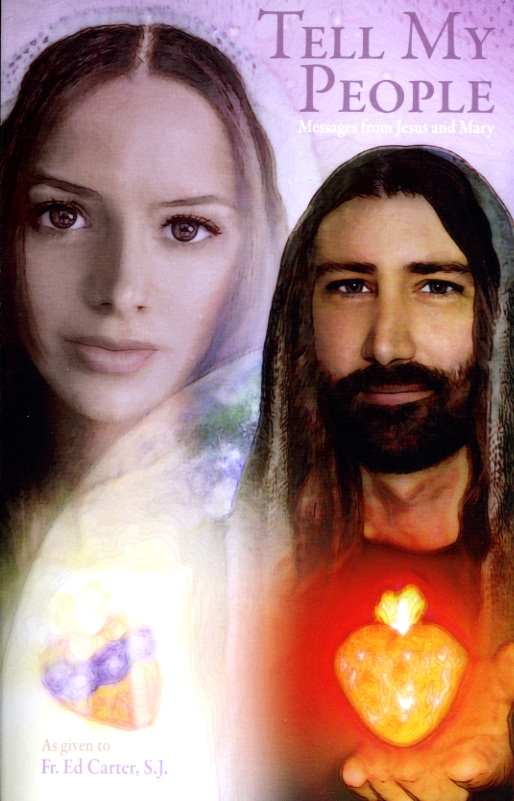
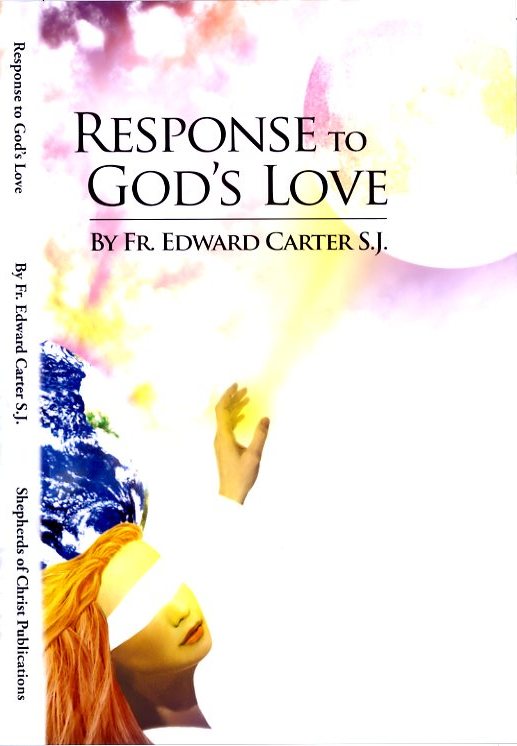
God's Blue Books 4, 5, 6A, 6B, 6C, 7, 8, 9, 10
$4.00 each plus postage
Blue Book 4
Blue Book 5
Blue Book 6A
Blue Book 6B
Blue Book 6C
Blue Book 7
Blue Book 8
Blue Book 9
Blue Book 10
Old Mass Books with the Imprimatur
$2.00 plus postage
New Mass Book with Imprimatur
$8.00 plus postage
New Parents & Children's Book with the Imprimatur
$8.00 plus postage
Fr. Joe's Cycle A - Steadfast to the Sun - Starts in Advent
$5.00 plus postage
Give the gift that keeps on giving!
Give to your priest.
Fr. Carter's Priestly Newsletters Book II
$6.00 plus postage
Special sale statue with glass
27" Statue of Our Lady of Fatima
$175 plus postage
Get a canvas print of Mary's image
with a sliver of glass and a little
bottle of Jesus and Mary water.
The glass will be fixed behind the
back of the picture.
$200.00 plus postage
Dan called and gave the report to me, when I hung up I saw this rainbow and took a picture for him.